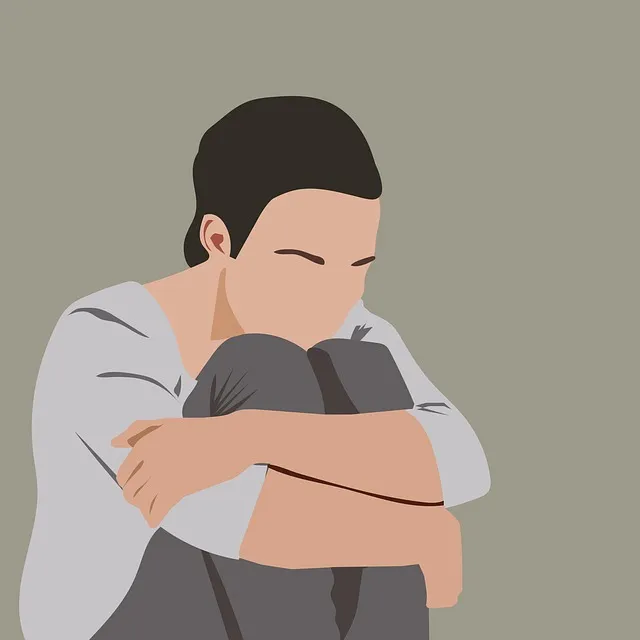Kaiser Permanente mental health Longmont emphasizes the importance of understanding RFM (Risk, Frequency, and Severity) for enhancing mental resilience and preventing burnout. Through self-esteem improvement exercises and mind over matter principles, individuals reframe negative thoughts and build mental fortitude. Their holistic approach includes evidence-based practices, innovative interventions, and trauma support services, focusing on confidence-boosting activities integrated into daily routines. Mindfulness techniques, physical activities, and stress management tools are encouraged to reduce stress levels, improve emotional balance, and enhance overall resilience, ensuring community access to comprehensive mental health care.
Resilience is a powerful tool in navigating life’s challenges, and RFM (Recovery, Flexibility, and Mastery) exercises have emerged as an effective method to build mental fortitude. This article explores how Kaiser Permanente Longmont utilizes RFM principles to empower individuals in their mental health journey. We’ll delve into practical exercises that foster personal resilience, offering insights for anyone seeking to enhance their coping mechanisms and overall well-being. Discover how these strategies can help you embrace life’s hurdles with strength and adaptability, inspired by Kaiser Permanente Longmont’s innovative approach.
- Understanding RFM and Its Impact on Mental Health
- Kaiser Permanente Longmont's Approach to Resilience Building
- Practical Exercises for Enhancing Personal Resilience
Understanding RFM and Its Impact on Mental Health

At Kaiser Permanente mental health Longmont, we recognize that resilience is a cornerstone of overall well-being. Understanding RFM (Risk, Frequency, and Severity) offers a powerful framework for enhancing mental resilience and preventing burnout. This simple yet effective approach helps individuals identify and manage stressful situations by categorizing their experiences based on these three dimensions.
By understanding the risk factors contributing to stress, the frequency of challenging events, and the severity of their impact, individuals can develop tailored coping strategies. Engaging in exercises that foster self-esteem improvement and apply mind over matter principles allows people to reframe negative thoughts and build mental fortitude. This proactive approach equips them to navigate life’s challenges with greater resilience, ultimately contributing to a more fulfilling and balanced lifestyle.
Kaiser Permanente Longmont's Approach to Resilience Building

Kaiser Permanente Longmont takes a holistic approach to resilience building, recognizing the interconnectedness of mental health and overall well-being. Their programs are designed to empower individuals with practical tools for managing stress, anxiety, and mood disorders. Through a combination of evidence-based practices and innovative interventions, Kaiser Permanente offers a range of services tailored to diverse needs.
One key aspect of their strategy is the integration of confidence-boosting activities into daily routines. By fostering resilience, individuals gain a sense of agency over their emotional and psychological states. Additionally, Trauma Support Services play a vital role in helping those who have experienced adverse events develop coping mechanisms for long-term mental health management. Kaiser Permanente Longmont’s commitment to these practices ensures that the community has access to comprehensive care aimed at enhancing mood management and overall resilience.
Practical Exercises for Enhancing Personal Resilience

Building resilience is an essential aspect of maintaining good mental health, especially in today’s fast-paced world. At Kaiser Permanente mental health Longmont, we understand that fostering emotional regulation and stress management skills is crucial for overall well-being. Practical exercises play a significant role in enhancing personal resilience, allowing individuals to navigate life’s challenges more effectively.
One effective method is incorporating mindfulness practices into daily routines. Simple techniques like deep breathing exercises, meditation, or even mindful walking can significantly reduce stress levels and improve emotional balance. Additionally, engaging in physical activities such as yoga or aerobic exercises has been shown to boost mood and enhance resilience by releasing endorphins, the body’s natural stress fighters. These activities provide an outlet for processing emotions and promote a sense of calm, enabling individuals to better cope with demanding situations.
Resilience is a powerful tool in navigating life’s challenges, and exercises like those implemented by Kaiser Permanente Longmont can significantly impact mental health. By understanding RFM (a key framework for assessing resilience) and adopting practical resilience-building strategies, individuals can enhance their ability to cope with stress and adversity. Kaiser Permanente Longmont’s approach serves as an excellent model for promoting mental well-being in the community, demonstrating that building resilience is accessible and beneficial for all.






